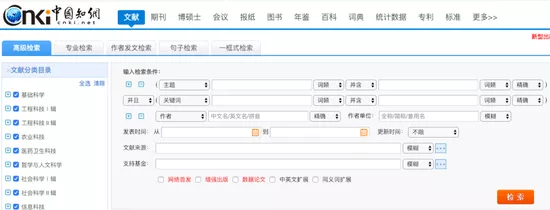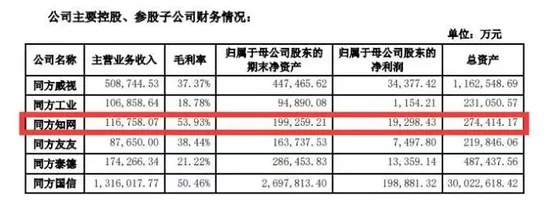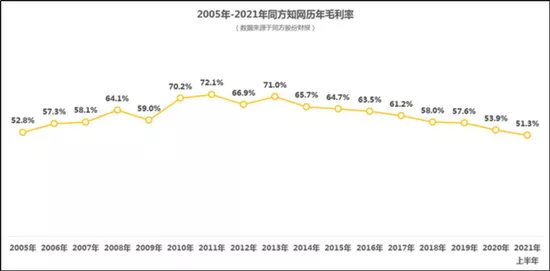HowNet has once again become the focus of public opinion. On May 13, according to the preliminary verification, the State Administration of market supervision filed an investigation into the suspected monopoly of HowNet according to law. China will take the opportunity of comprehensive investigation, innovation, and development of the infrastructure. China will take the opportunity of compliance, complete the rectification and development of the infrastructure, and issue a document according to the law.
In April this year, a news that "the Chinese Academy of Sciences could not afford to disable the China HowNet database due to the renewal cost of nearly 10 million" spread on social media.
According to the information, the literature and information center of the Chinese Academy of Sciences issued a notice on April 8 that Tongfang Zhiwang (Beijing) Technology Co., Ltd. suspended the access of the Chinese Academy of Sciences to the CNKI database. From now on, it will not be able to download the data of CNKI science and technology journals and doctoral and master's thesis normally.
The notice mentioned that in 2021, the total subscription cost of CAS group's China HowNet database has reached tens of millions, and the high subscription cost has become a "Big Mac" in the introduction of CAS group's resources. The notice also said that the Chinese Academy of Sciences and Tongfang HowNet company had active discussions on the cost and ordering mode, but after several rounds of arduous negotiations, China HowNet database still insisted on the renewal cost of nearly 10 million, and the conditions in terms of the number of members and the price of a single company were quite harsh.
In fact, this is not the first time HowNet has become the focus of public opinion. The Chinese Academy of Sciences is not the first academic research institution to announce the suspension of the use of CNKI due to high costs.
Red Star News once reported that in the 10 years from 2012 to 2021, at least six universities announced that they would suspend the use of HowNet, including Peking University and Wuhan University of technology, all because the growth of HowNet was too high.
However, after being out of service for a period of time, due to the uniqueness of HowNet database resource content and the one-stop search of its resource integration, it is difficult to realize in other databases. Most colleges and universities continue to cooperate with HowNet under various pressures.
In addition to being boycotted by colleges and universities for frequent price increases, HowNet fell into a vortex of controversy last year because it was sued by the author of the paper.
At the end of 2021, Zhao Dexin, an 89 year old professor of Rongxiu at Central South University of Finance and economics, told the website that "HowNet included more than 100 of his articles without authorization". Finally, HowNet was sentenced to compensation of more than 700000 yuan.
It is reported that CNKI arbitrarily collected more than 100 papers by Zhao Dexin, a retired professor of Zhongnan University of economics and law. Zhao Dexin didn't get a penny of the manuscript fee and had to pay for his own download.
After many years, Zhao Dexin finally won the lawsuit in the Beijing Intellectual Property Court and won more than 700000 compensation.
On December 10, 2021, HowNet publicly apologized for this: "sincerely accept the criticism from the author, the media and all sectors of society, and express sincere apology to Professor Zhao Dexin."
But then, HowNet took off all Zhao Dexin's papers.
After Zhao Dexin sued HowNet to protect his rights, his wife Zhou xiuluan also chose to protect his rights. The court ordered HowNet to compensate Zhou xiuluan for a single article ranging from 2100 yuan to 2400 yuan.
Therefore, HowNet appealed against the high amount of compensation.
Recently, the Beijing Intellectual Property Court rejected HowNet's appeal in the second instance and made a final judgment upholding the original judgment.
According to the judgment, the court held that the academic journal company provided the downloading and reading service of the works involved to the unspecified public through its "CNKI mobile HowNet" IOS mobile software, which infringed Zhou xiuluan's right to the information network communication of the works involved and should be liable for infringement compensation. HowNet appealed that the amount of compensation awarded by the court of first instance was too high and lacked factual and legal basis, which was not supported by the court.
According to the Changjiang Daily News, in a recent live trial on the China open court trial network, the entrusted litigation agent of China Academic Journal (CD version) e-magazine Co., Ltd. admitted that if the compensation is based on the standard of 200 yuan / 1000 words of Professor Zhao Dexin of Zhongnan University of economics and law, the works in the library of HowNet will be compensated by about 120 billion yuan.
As China's largest document database, HowNet has academic journals, patents, excellent doctoral and master's degree theses and other resources, with a total of more than 200 million documents.
HowNet is also the first choice for many students in terms of duplicate checking of papers.

But HowNet is more than just a company.
In 1998, the world bank put forward the concept of "National Knowledge Infrastructure", which is an "information construction project aimed at realizing the dissemination, sharing and Value-added Utilization of knowledge resources in the whole society". China HowNet is a part of China's "China knowledge infrastructure project" (that is, CNKI).
In 1999, the predecessor of HowNet, China Journal Network, was initiated by Tsinghua University and Tsinghua Tongfang and supported by many national departments, including the Ministry of education, the Propaganda Department of the CPC Central Committee, the Ministry of science and technology and so on.
In 2003, it was renamed "China HowNet".
With national support and policy support, HowNet also has core copyright resources. Over the years, CNKI database has maintained a high increase in renewal price with its influential market position in the Chinese journal database market.
According to the 2020 annual report published by Tongfang Co., Ltd., Tongfang Zhiwang's main business income exceeded 1.1 billion yuan, net profit exceeded 190 million yuan and gross profit rate reached 53.93%.

Some netizens threw out a map of HowNet's gross profit margin from 2005 to 2021, which shows that all the indexes of HowNet's gross profit margin are more than 50%, up to 72.1%. The netizen said that HowNet is a typical monopoly of academic resources - a true learning valve.
You know, ICBC, which makes the most money in a shares, has a net profit of 348.3 billion yuan in 2021, and its gross profit margin in the first quarter of 2021 is only 46.2%.

But in sharp contrast to the high profit, it is the author's meager income.
According to Xinhua Daily Telegraph, when the doctoral thesis and master's thesis are published on HowNet, the author himself can only get 100 yuan in cash and 400 yuan of search and reading card as remuneration. However, every time the author's paper is downloaded on HowNet, the platform will charge 15 yuan / copy or even 25 yuan / copy.
After the Zhao Dexin incident, HowNet lowered the price of master's thesis from 15 yuan / copy to 7.5 yuan / copy, a decrease of 50%; The doctoral dissertation changed from 25 yuan / copy to 9.5 yuan / copy, a decrease of 62%.
Compared with the extremely low paper "purchase" price, these adjustments are not enough to calm the public's doubts about HowNet.
Banyuetan commented in 2019 that the national strength has made HowNet, which is supported by the academic achievements of scholars. However, after controlling the massive literature data, it not only stipulates the minimum consumption limit for users, but also increases the prices of colleges and universities year after year by relying on its monopoly position. Buy out the author's academic achievements at a low price at one time, but the way of compensation has become a reading card with different denominations. It can be said that fat water does not flow to outsiders. The most embarrassing thing is that the author not only didn't get much money, but also paid when he went to download his own article.